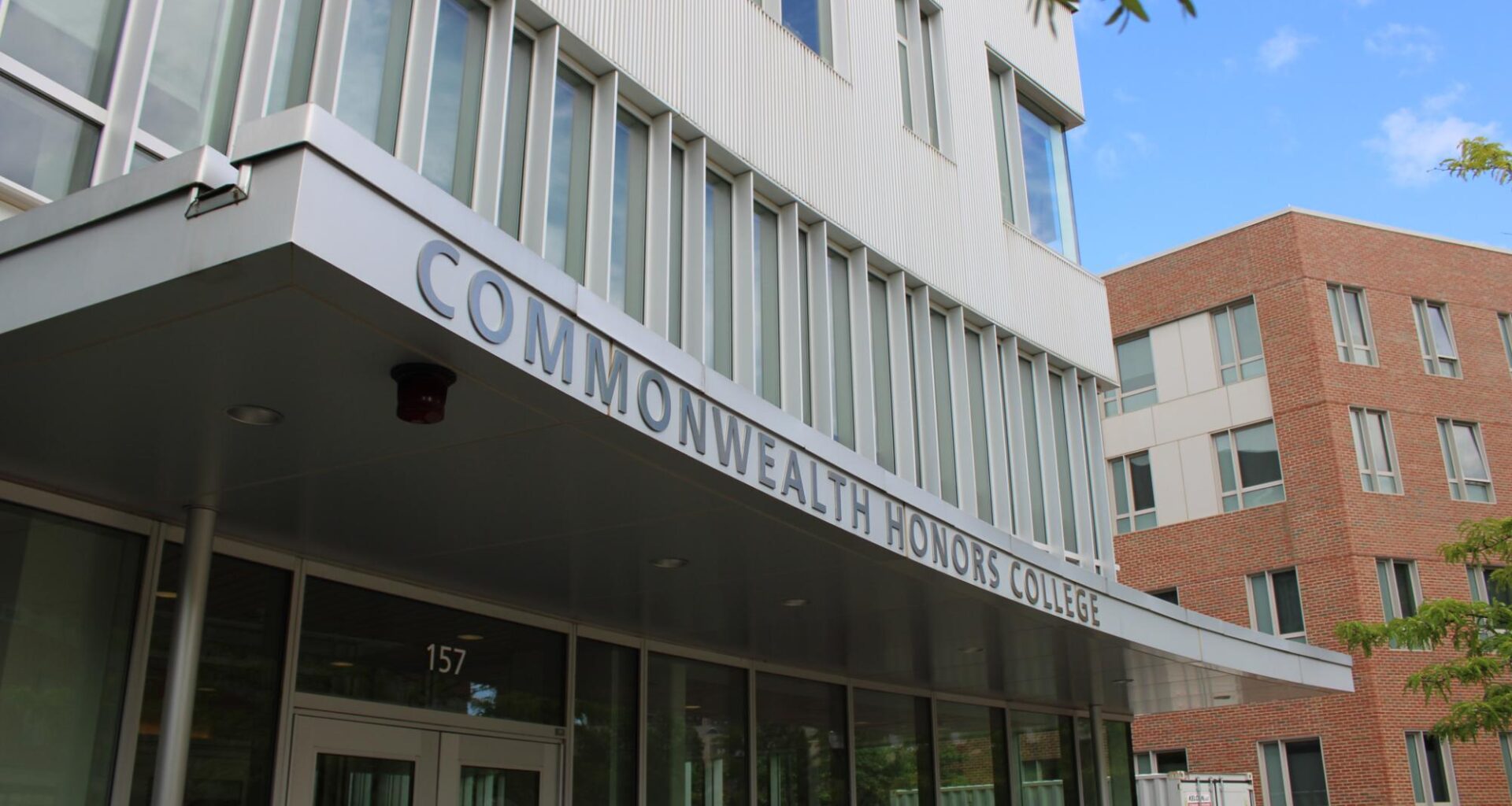On Sept. 12, the University of Massachusetts Amherst’s Ellsberg Initiative for Peace and Democracy hosted a promotional screening and discussion of Paul Jay’s documentary “How to Stop a Nuclear War” at the Commonwealth Honors College events hall.
Jay, an award-winning filmmaker, editor-in-chief of theAnalysis.news and founder of The Real News Network, answered audience questions about his film that builds on the work of Daniel Ellsberg, a former defense analyst turned Vietnam War whistleblower and anti-nuclear activist.
Jay says that Ellsberg’s 2017 book, “The Doomsday Machine: Confessions of a Nuclear War Planner,” woke him up to the threat of nuclear war.
The film, narrated by actress Emma Thompson, is rooted in Ellsberg’s experience as a nuclear war planner during the Cold War and the “institutional madness” he encountered as the nation entered a nuclear arms race with the former Soviet Union.
“We should have thrown open the cages and screamed bloody murder. Because that’s exactly what it was,” Ellsberg said in the film.
While working as a strategic analyst at the RAND Corporation in the 1960s, Ellsberg became disillusioned with the war in Vietnam and the Cold War era stockpiling of nuclear arms. In 1971, Ellsberg distributed a classified study to the press, revealing that the federal government lied to the American public about military activity, motivations and the likelihood of defeat throughout the Vietnam War. This study later became known as the Pentagon Papers.
Throughout the discussion, Jay emphasized how understanding America’s history is essential to recognizing the urgency of changing our nuclear and defense policies. According to Jay, the threat of nuclear war is intensified by Americans’ fears of foreign military threats that have a history of being exaggerated by government rhetoric.
“Americans are always taught to feel under siege,” Jay said. “If we don’t get over this … numbness … we won’t survive it.”
Jay argues that this mindset is founded in Cold War era concerns about potential military conflict with the Soviet Union. Jay said CIA analyses concluded there was no Soviet military threat, and the country was not outpacing the U.S. in nuclear development. Yet, the U.S. government publicly maintained the illusion that the Soviet military threat was eminent, spreading fear among Americans and justifying increased nuclear armament.
This fear made Americans support the production of nuclear weapons and according to Jay, has the same effect in the modern era.
“We’re right back in McCarthyism,” Jay says. “We’re dealing with a systemic thing and the cold war ideology is just ‘listen to Donald Trump’ … it’s word for word what we heard in the 50s.”
A lack of acknowledgment of these Cold War attitudes among Americans, Jay argues, contributes largely to the modern mainstream acceptance of nuclear weapons.
“Understand that we are in this moment just part of a river of history that got us here,” Jay said, “every moment that brought us here is still actively shaping today.
The film criticizes President Donald Trump’s proposed Golden Dome, a missile defense system with an estimated official cost of $175 billion. The Center for Arms Control and Non-Proliferation estimated figures upwards of 500 billion.
The Golden Dome project moves in the opposite direction of Jay and Ellsberg’s goals of a revaluation of nuclear policies, treaties and ultimate nuclear disarmament.
“There are concrete steps that can be taken to reduce the risk of nuclear war,” Jay said.
These actions include eliminating “hair trigger” ICBM missiles, negotiating new treaties on nuclear weapons and their testing, holding public hearings on the dangers of nuclear winter and banning the integration of artificial intelligence in nuclear weapons.
When asked by an audience member about the futility of measures other than abolition against nuclear weapons, Jay reasoned that in the current moment, progress is better than no change at all.
“I encourage you, fight for abolition,” Jay said.
According to the Nobel Peace Center, the film is set to premiere in theaters in Fall 2026.
Bella Astrofsky can be reached at [email protected]. Anna Fanning can be reached at [email protected].
